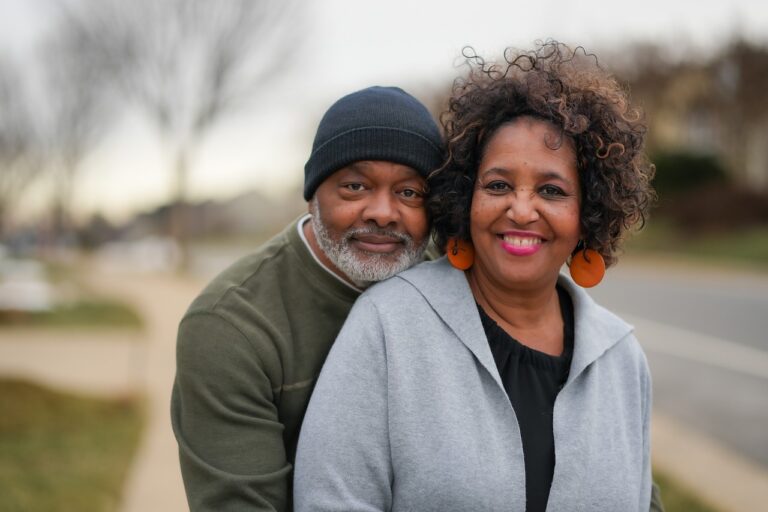Casual Dating Vs. Friends With Benefits
In the world of modern dating, it can often feel like there are endless options and possibilities. Two popular choices that often come up are casual dating and friends with benefits. While they may sound similar, there are some important distinctions between the two. Whether you’re a seasoned dater or just starting out, understanding the differences between casual dating and friends with benefits can help you navigate the ever-evolving landscape of relationships with clarity and confidence. So, let’s take a closer look at these two types of connections and discover what sets them apart.
Casual Dating vs. Friends with Benefits
Introduction
When it comes to relationships, there are various types that people can explore. Two common types that often come up in conversations are casual dating and friends with benefits. Each of these relationships has its own dynamics, expectations, and benefits. In this article, we will delve into the world of casual dating and friends with benefits, exploring their definitions, differences in emotional attachment, expectations and commitment levels, the nature of the relationship, intimacy levels, communication and boundaries, the possibility of dating other people, long-term potential, and handling the end of the relationship. By understanding these aspects, you can gain clarity on which type of relationship is right for you.
Definition of Casual Dating
Casual dating refers to a type of non-exclusive and non-serious relationship where individuals explore different potential partners without any commitments. It emphasizes the freedom to date multiple people and enjoy the company of others without the pressure of long-term commitment or exclusivity. Unlike committed relationships, casual dating allows individuals to prioritize their personal growth, exploration, and enjoyment of different experiences. It is a way to get to know oneself and others on a deeper level without the expectations and responsibilities that come with a serious relationship.
Definition of Friends with Benefits
Friends with benefits, often abbreviated as FWB, combines friendship with physical intimacy. It involves having a relationship with someone where both parties engage in sexual activities without the emotional attachment that typically accompanies a committed relationship. The emphasis in friends with benefits is on enjoying sexual gratification and pleasure without the need for romantic involvement or long-term commitment. It is a way to explore one’s sexual desires and fulfill physical needs without the complications of emotional involvement.
Differences in Emotional Attachment
In casual dating, emotional attachment is typically minimal. Individuals involved in casual dating relationships usually prioritize personal independence, freedom, and self-exploration over deep emotional connections. This allows them to keep emotions detached and avoid feelings of jealousy or possessiveness. On the other hand, friends with benefits relationships can be more emotionally complex.

Expectations and Commitment
When it comes to casual dating, setting expectations is crucial. It is important to establish early on that the relationship is non-exclusive and non-committal. This helps avoid misunderstandings and ensures that both parties are on the same page. Open communication about intentions and desires is key to maintaining a healthy casual dating relationship. Friends with benefits relationships also require a clear understanding of expectations. While the level of commitment is lower than in traditional relationships, there are unspoken rules and boundaries that need to be acknowledged. Mismatched expectations can lead to complications, so it’s essential to communicate openly and renegotiate boundaries if necessary.
Nature of the Relationship
In casual dating, the nature of the relationship is characterized by flexibility. There are no set meeting frequencies or obligations. Individuals involved in casual dating can enjoy the company of different partners without the need to reach relationship milestones or fulfill obligations.

Intimacy Levels
Casual dating often involves a shallower level of emotional intimacy compared to other types of relationships. Connections may be brief and focused on enjoying each other’s company without delving into deep personal disclosures. This helps maintain emotional detachment and avoid potential complications that may arise from developing strong emotions. Friends with benefits relationships involve both physical and emotional intimacy. Although the primary focus is on sexual activities, it’s important to establish boundaries around the level of physical involvement and ensure emotional detachment is maintained. Striking a balance between physical pleasure and emotional connection becomes essential in navigating these relationships.
Communication and Boundaries
Clear and open communication is vital in both casual dating and friends with benefits relationships. In casual dating, it helps avoid misunderstandings and assumptions about the nature of the relationship. Establishing boundaries and expectations early on ensures that both parties are on the same page. In friends with benefits relationships, effective communication is essential in order to prevent complications and maintain clarity. Negotiating boundaries around friendship and sexual involvement allows both parties to feel comfortable and respected.

Dating Other People
One of the key aspects of casual dating is the ability to date other people simultaneously. This allows individuals to explore their options and get to know different people without exclusivity. However, in friends with benefits relationships, the focus is often on one specific individual. Engaging in sexual activities with multiple partners may complicate the dynamics of the friendship or lead to emotional fallout. It is important to establish boundaries and discuss expectations regarding dating other people to prevent misunderstandings.
Long-Term Potential
Casual dating does not typically involve long-term potential. It is more focused on enjoyment, personal growth, and exploration. However, friends with benefits relationships can have varying levels of long-term potential. While they may start as purely physical arrangements, feelings can sometimes develop over time. It is important to reassess the relationship periodically and communicate openly about any changes in feelings or expectations. Honesty and open-mindedness can help navigate the potential shifting dynamics of a friends with benefits relationship.
Handling the End of the Relationship
Casual dating relationships often do not have clear breakups or closures. As individuals involved in casual dating are not committed to each other, they can simply move on without much emotional baggage or attachment. It is important to communicate openly about the conclusion of the relationship to prevent any misunderstandings. In friends with benefits relationships, the friendship aspect should be preserved even after the physical involvement ends. Coping with potential emotional fallout and loss of intimacy requires open communication, understanding, and respect for each other’s feelings.






